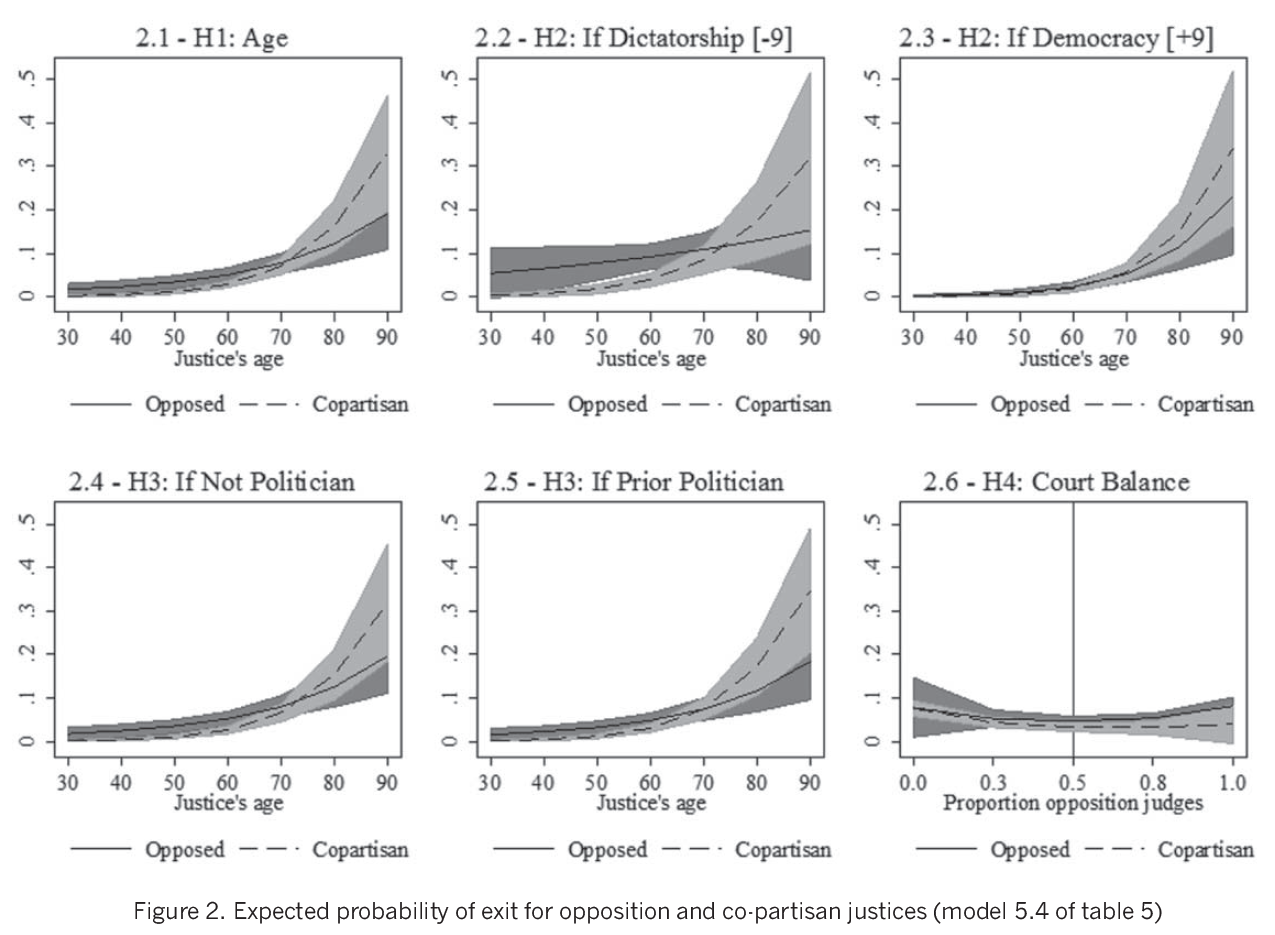2017. “Strategic Retirement in Comparative Perspective.” (with Aníbal Pérez-Liñán) Journal of Law and Courts 5 (2): 173-197. PDF.
Students of judicial behavior debate whether justices time their retirement to allow for the nomination of like-minded judges. We formalize the assumptions of strategic retirement theory and derive precise hypotheses about the conditions that moderate the effect of partisan incentives on judicial retirements. The empirical implications are tested with evidence for Supreme Court members under democracies and dictatorships in six presidential regimes between 1900 and 2004. The theory of strategic retirement finds limited support in the United States and elsewhere. We conclude that researchers should emphasize “sincere” motivations for retirement, progressive political ambitions, and—crucial in weakly institutionalized legal systems—political pressures.


